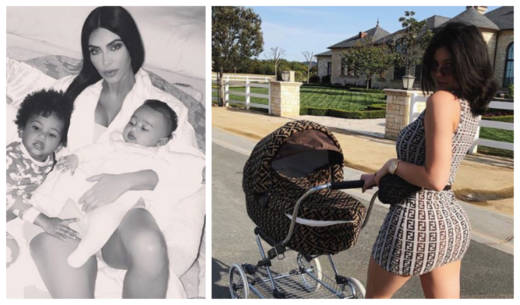True Thompson. Stormi Webster. Reign Disick. All children of the Kardashian-Jenner family and none of them with names to indicate it. When it comes to naming babies, the K-J clan are steadfast in their commitment to two things: unusual first names paired with the last names of their baby daddies. Convention clearly couldn’t be further away when it comes to the former, so why go so old-school with the latter?
The only married Kardashian, Kim, is happy to double-barrel her own name into Kardashian-West, but, for some reason, hasn't done so for her three kids. In fact, Kim and her sisters are now all part of the 18 percent of American mothers who have a different last name to their partners and children. The fact that even Khloé stuck with tradition, approximately three minutes after finding out her baby daddy is a big fat lying cheater, is reasonably astonishing.
So why are the Kardashians so reluctant to pass on their legendary name?
It goes without saying that children taking the last name of their father is a long-standing tradition, and the norm for most families. A 2015 BabyCenter survey found that only four percent of children take their mother's last name and a minuscule two percent take both parents' last names. But most families aren't the Kardashians, and most family names don't carry such a legacy. If your kid could be a Kardashian, with all of the inherent privilege and special treatment that comes with that, why would you want them to be a Thompson? Or a Webster?
Perhaps the decision is related to appeasing partners who have to live in considerable Kardashian shadows. Perhaps it's a way for the men in Khloé, Kourtney, and Kylie's lives to feel more powerful and more masculine, within partnerships where the women are more successful, more famous, and probably wealthier. Or perhaps it simply goes back to the most basic of basics.


